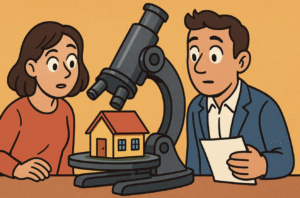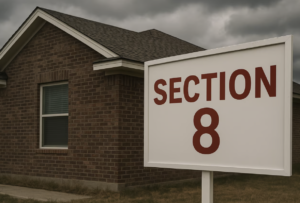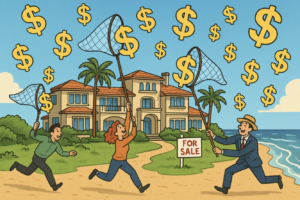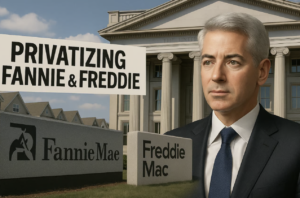|
|
|
|

Trust This.
By Joseph E. Seagle, Esq. ● Apr 07, 2023
Smart Brevity® count: 5 mins...1304 words
👋 Happy Good Friday and the third day of Passover for those who celebrate.
If you’re into egg hunts, giant pink bunnies, and Easter parades, be sure to read on.
|
|
1 big thing: Power and higher property taxes

OUC has invested its profits in massive solar farms
Photo: American Public Power Association
Bills about municipal utilities making their way through Florida’s House and Senate could lead to drastically higher real property taxes and rents if signed into law.
Why it matters: The bills prohibit city- and county-owned utilities’ profits from being used for services such as fire, police, parks, community centers, after-school programs, and other municipal services.
-
Instead, the company’s profits would be mandated to be used to maintain and improve the utilities.
-
It would apply to municipal power companies and water and sewer providers.
📊 By the numbers: The bill would blow a hole of $83.5 million in Orlando’s general revenue alone.
-
OUC, the power utility owned by the citizens of Orlando, generated that much profit and funneled to the City last year.
-
That is 14% of the City of Orlando's total revenue.
-
OUC will generate $102 million this year for the City’s general revenue fund.
Municipalities like Jacksonville, Kissimmee, Winter Park, Orange County, and Tallahassee would lose hundreds of millions of dollars of revenue if the bills became law.
State of play: Decades ago, many Florida cities and counties used their citizens’ taxes to purchase local power generation and distribution utilities, sewer treatment plants, and water distribution facilities from private companies.
-
The taxpayers’ dividend? For generations, they have enjoyed lower property taxes as the profits from those utilities were distributed to the general revenue funds of the cities and counties that own them.
-
They also enjoy lower utility rates and more reliable utility services than other Floridians served by Duke Energy, FPL, and private operators of water and sewer services.
〰️ The bottom line: If these bills become law, the only way cities and counties will be able to continue providing the level of services their citizens enjoy would be to raise real property taxes. In Orlando, that could mean going from over $6 per $1,000 to as much as $9 per $1,000.
-
The alternative is to cut fire and police services and reduce road maintenance and other services citizens expect.
-
Also, municipalities would need to sell their utilities to private companies like FPL and Duke to raise revenue. Following that thinking, it appears clear who is behind these bills ….
Go deeper: Orlando Sentinel
|
|
2. New tort reform law affects property owners

Protect tenants' guests from banana peels, please.
Photo: Alexas Fotos
The Governor signed House Bill 837 an hour and a half after the Legislature sent it to his desk.
Why it matters: The new law makes major tweaks to Florida’s civil litigation processes and rules to swing the pendulum farther in favor of businesses and away from consumers.
In broad strokes, the new law
-
Requires that negligence lawsuits be filed within two years instead of four;
-
Adopts the “modified” comparative negligence standard in negligence cases, meaning that a plaintiff that is more than 50% responsible for her own injuries recovers nothing in a lawsuit;
-
Limits “one way” attorney fees, putting plaintiffs at higher risk of having to pay the defendant’s attorneys’ fees in more types of cases when they lose;
-
Revises the calculation of medical damages to reduce the amount injured plaintiffs can recover from botched medical procedures;
-
Permits jurors to assign liability for a plaintiff's injuries to a criminal actor, even if that person is not a party to the civil lawsuit; and
-
Creates a presumption that owners of multifamily housing are not liable for a plaintiff’s injuries if certain security measures were in place.
The law brings Florida in line with the majority of U.S. states that have shorter statutes of limitation and modified comparative negligence. Before passage, Florida was in the minority.
Yes, but: I don’t know any state that allows a jury to include an unnamed and unserved criminal actor as even partially liable for causing a plaintiff’s injuries.
-
How that works: If a shopper is mugged in a grocery store parking lot and suffers a permanent traumatic brain injury when she hits the ground, jurors can find that the mugger is 90% liable for her damages, including millions of dollars for nursing home care for the rest of her life, and her spouse’s loss of a relationship. The property’s owner, who failed to provide adequate security, is only 10% liable. The injured lady will receive 10% of her damages from the property owner while the broke mugger sits in jail and pays nothing. Taxpayers will cover the balance of her long-term care.
Our thought bubble: The number of lawsuits filed will increase with the shorter statute of limitations, reducing the time to settle matters instead of filing.
Yes, but: Plaintiffs who are victims of crimes committed in public places will find it harder to find attorneys to take their now-potentially-worthless cases.
-
Property owners of public spaces can cut back on costly security measures like brighter parking lot lights, landscape maintenance, and security cameras or guards.
-
Florida consumers will feel less safe when they go shopping, park in a parking garage, stay in a hotel, or visit any other public spaces.
-
Business owners who maintain a focus on security will have a competitive advantage.
|
|

Not a tent in Orlando, but it could be.
Photo: Naomi August
-
In its first month, the homeless outreach in Orlando’s Parramore neighborhood has moved 27 (out of 247) people from tents on the street and into housing. Orlando Sentinel (subscription)
-
Colorado, Georgia, Tennessee, Idaho, and North Dakota have passed laws that ban Non-Title Record Agreements for Personal Service (NTRAPS), which we’ve written about here before each time MV Realty is sued. Maybe someday, Florida’s legislature will address this pressing issue. ALTA
-
Defaults on commercial real estate loans surged to a 14-year high as the pandemic’s work-from-home vibe pushed workers out of offices, and online shopping shut down brick-and-mortar retailers. Rising interest rates are the straw that broke this camel’s back. Investopedia
-
The top 10 cities where sellers are reducing prices the most and least. REALTOR online
-
The “exactly one good reason” to buy a house: to fill it with love. The Atlantic
-
Florida Supreme Court sided with Sarasota County property appraiser in stripping away a portion of the homestead tax exemption from a homeowner renting out part of his residence. Watch out if you’re renting out a portion of your home for short-term rentals. Orlando Sentinel
|
|

The peace lily is in full bloom in our front yard this week.
Photo: Joe Seagle
🍽️ There are a lot of plates spinning in our offices currently, and I’m running from one to the other to keep them from falling. Keep reading each week to stay on top of everything coming over the next 60 days. Big news is on the way, and I’m shivering with an … tic … i … pation to tell you 😁
🐰 You’ll find us Sunday morning, “hiding” 3,000 eggs in Albert Park on Edgewater Drive in Orlando’s College Park area for the CPNA’s annual Easter Egg Hunt.
-
The ribbon drops to let the children start hunting at 9:00 a.m., and all eggs are found within five minutes.
-
So, if you know some kiddies who want to egg hunt, get them there by 8:45 a.m. BTW, we separate the big kids from the small ones to avoid problems.
-
There won’t be any Easter parade afterward, but the Easter Bunny will be available for pictures with the kiddos and parents once the hunt ends.
-
If you’re there, grab me and say “hi!”
|
|
We hope you found this helpful — any feedback is appreciated and can be shared by hitting reply or using the feedback feature below.
Be on the lookout for our next issue! 👋
|
|
|
|
Was this edition useful?
 

Your responses are anonymous
|
|
|
Powered by

|
|
|













